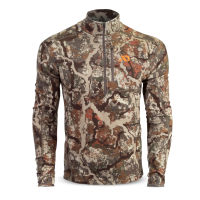
You’ve got questions. We’ve got answers (and if we don’t, we’ll make them up). Every day, fellow MeatEaters send us more than 100 emails regarding hunting, fishing, cooking, conservation, and more. So, we decided to publish a series dedicated to our favorite FAQs. This is Ask MeatEater.
Hunting is not monolithic. Every person that takes part in the pursuit does so with their own motivations and rewards.
That’s why I think your defense of hunting should lean on your personal story. While it might be true that hunting benefits our society, it’s a complicated case to make. Explaining the connectivity between hunting, conservation, wildlife management, and our North American Model of Wildlife Conservation can be too impersonal, tactile, and hard for some people to understand. It doesn’t take into account the real reasons why you’re drawn to hunting, and why killing a wild animal is so much more than it might seem. Infuse this information in your story, but just don’t leave out your “why.” We don’t get up at 3 a.m. to go duck hunting because of the funds that go into the Federal Duck Stamp program. We understand that fundamental commitment to conservation, but that’s not what makes duck hunting so damn fun or why duck tastes so damn good.
So, simply listing out all the ways that hunting enriches your life can be pretty powerful. Once you start down that road, you not only have the ability to convince a vegan of hunting’s virtues, but you can remind yourself why you love it so much.
Remember, there is no version of hunting where everyone can take part. There just aren’t enough wildlife resources, and the impact to the land would be too severe. So, you’re not trying to convince every vegan to pick up a rifle, but you are trying to increase their understanding of your personal connection with hunting itself, and in turn, its overall benefit.
No matter who you’re talking to, where they come from, or what they’re struggling with in their own lives, there will be something in your explanation that speaks to them. I’ve had so many non-hunters say during conversations like this one, “I’ve never thought of it that way.”
Here’s how I think about my own connection to hunting:
Let’s start at a relevant place: the ills of our modern society. If you take a look at the rising tide of depression and anxiety amidst the COVID-19 pandemic, it’s easy to see that many people need a solution. Hunting can be it.
When I think about all the things that bog me down in my daily life, I know that there is a cure in the mountains. Our soft, sedentary lifestyles are over-dependent on convenience and technology and often make it harder to tackle complex problems. We need to move, react in real time, and face unforgiving challenges. Learning where an elk lives, what it eats, how it moves, and how to talk to it provide an endless cascade of real, hard problems to solve. It’s an unpredictable landscape that presents a game-like quality that draws me in like nothing else. It turns on my senses and opens the door to a truly interactive understanding of the natural world.
In that way, hunting has helped me appreciate nature and its many complex systems. I want to know how it all works and how every wild creature plays a role. This leads to a need to understand natural history, predation, and cohabitation. It gives me a participatory connection to the world that I don’t think I could get in any other way.
That new relationship has led me to think of the land as a community to which I belong, and something I draw from to survive. I want to eat well and have a proximity to my food and its impact on the land. Nowadays, we’re all moving away from our food’s source and its ultimate importance to living a happy and healthy life. Going into the wild and coming back with hundreds of pounds of healthy, non-GMO elk meat or just a few skinned squirrels has shown me that I can maintain a close proximity to what I eat, while also lessening my impact on the environment. Eating what I kill is much more efficient than any other method of sustenance.
Then comes the understanding of death. Hunting gives me a tragic knowledge of the harsh consequences of life or death decisions that the pursuit forces me to make. When I ultimately do take the life of an animal, I must come to grips with why and how. Death is inescapable in nature and in hunting, and I understand it so much better for having participated. I can no longer fool myself into thinking by simply removing myself from that process, that I am not causing death. At the same time I know that death is often beneficial in the wild.
That appreciation for death has given me a deeper enjoyment of life. I can’t think of anything better than the bonds created by hunting with my dad or my best friend and experiencing all of this together. It is essential to my happiness.
Because of hunting I am more fit mentally and physically, better fed, better equipped to face tough challenges, more compassionate, and more involved in the natural world. It’s not all about ego and bloodlust like you’ve been told.







